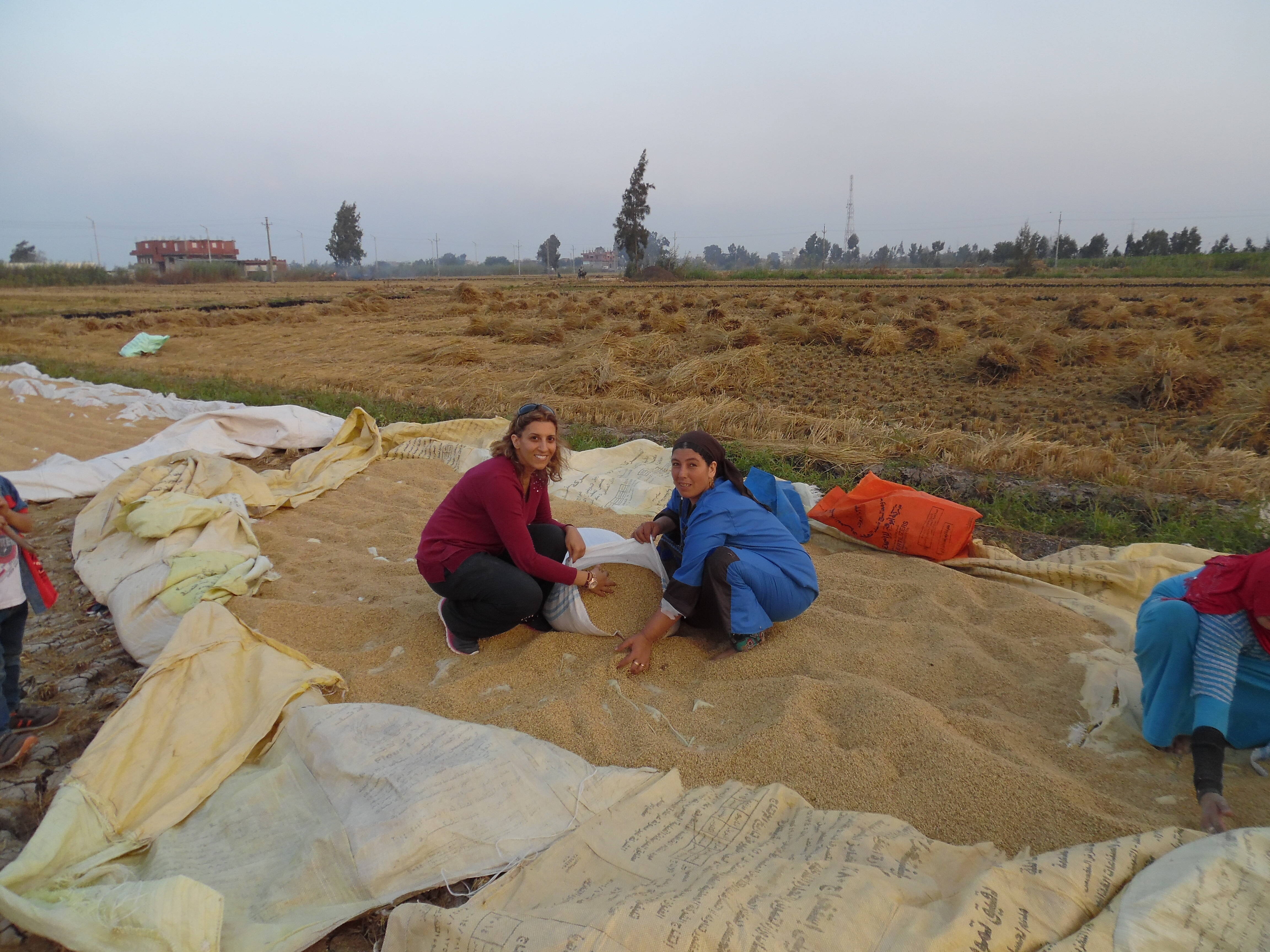ICARDA Female Scientists on Work, Expectations and Gender

Last week, Dina Najjar and Mira Haddad, two prominent ICARDA female scientists, talked about their experiences as women conducting research across dry regions in North Africa to boost small family farmers’ livelihoods.
Dina and Mira also answered questions from the audience during the hour-long webinar held on February 11th, to celebrate ‘Women and Girls in Science’ day.
Dr. Dina Najjar is a Gender Scientist and a Social Economy Policy researcher based in Morocco, and Mira Haddad is an Associate Researcher in Spatio-temporal Assessment working in rangeland restoration in Jordan.
The ICARDA webinar was part of a 13-hour Marathon organized by WIRES, CGIAR’s newly established employee-led resource group which strives to bring female scientists’ research contributions into the limelight, and bridge the persistent gender gap in science.
Across all scientific fields, including agricultural research for development, women make up about 30% of the overall scientific force. This low representation of women across scientific disciplines has tremendous ramifications on the research that is produced, and on the communities it is designed to support.
“There is a famous paradox in the Middle East and North Africa region, explained Dr. Najjar during the talk, which is that there is a high percentage of a well-educated women that do not end up in the workforce. This undervaluation of women’s role is a loss for everyone.”
This loss of trained womanpower, sometimes referred to as ‘the marriage gap’ in MENA, can be explained by cultural norms, what women are told to prioritize, a lack of visibility and female role models, all compounded by a dearth of female scientists in leadership positions.

“A woman does not only have the responsibility of doing scientific work, but she must also take care of her marriage, children and parents,” Mira said. “Having a flexible work system that understands female lives and adapts to their needs is key,” she added.
The two scientists talked about the ups and downs-and interesting asides-of being a female researcher in the MENA, particularly when conducting fieldwork. “Many farmers perceive me as a man, I just don’t fit their perception of what a woman is,” said Dina, adding that this is often helpful in granting her full access to both men and women respondents.
It is complex, culturally, to be the only woman among twenty men in the field, explained Mira. “But the title I have, and my colleagues’ support make it possible for me to speak out and be heard,” Mira said, pointing out that after her visits, she is often contacted by male community leaders asking for technical help.
Dina Najjar spoke at length about cultural biases when it comes to technology and gender. “Water technology is seen as very masculine; it is physically demanding and will make your clothes wet-which is not appropriate for women in this part of the world,” she said. Even when women are involved in irrigation, she explained, their role is often not recognized, which means that they do not get to participate in water users' associations and other local governance institutions.
Not only is technology gendered, but it can have very different outcomes for men and women. A new technology with obvious benefits to male farmers could have negative implications on women’s workloads. Therefore, getting data from women, their needs and priorities, as well as and the trade-offs they juggle with is key, especially since they make up a larger chunk of the world’s agricultural workforce.
Female field researchers, because they have access to rural women and can gauge their needs, are better placed to ensure that a new technology or cropping system is beneficial to all household members.
Dr. Jacques Wery, who is ICARDA’s Deputy Director General for Research, thanked the two scientists for presenting their work. “I am very proud to have Dina and Mira represent our organization in this discussion, because they truly are the future of ICARDA, not I,” he said.
